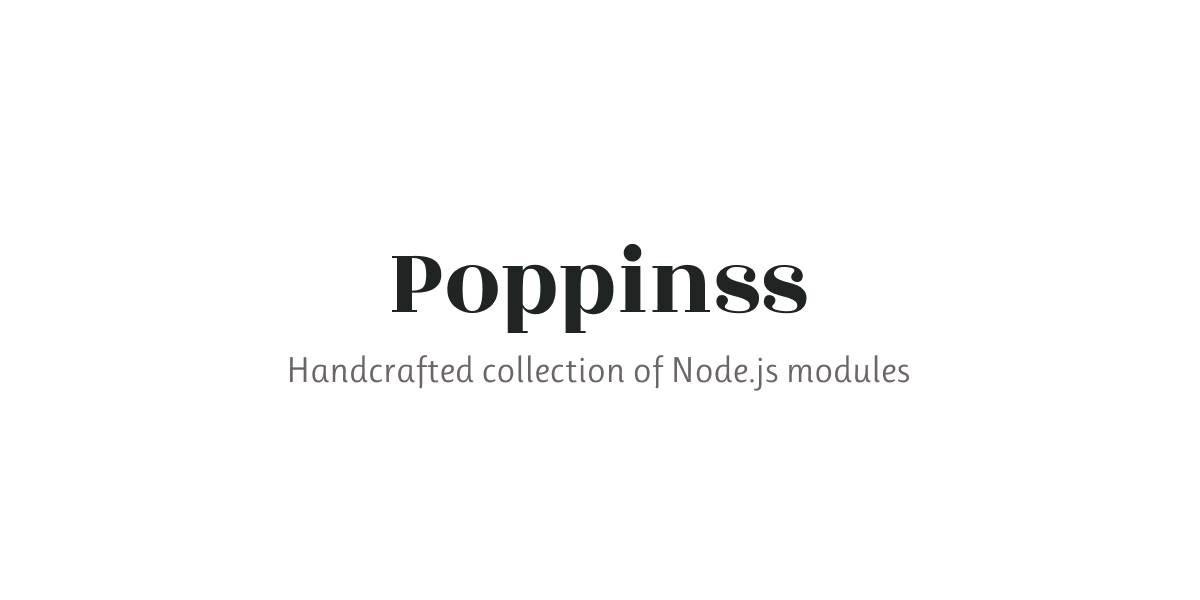Hooks
A no brainer module to execute lifecycle hooks in sequence.





I find myself re-writing the code for hooks in multiple packages, so decided to extract it to it's own module, that can be re-used by other modules of AdonisJS.
Table of contents
How it works?
The hooks class exposes the API to register, remove and exec lifecycle hooks for any number of actions or events. The class API is meant to be used internally and not by the user facing code and this gives you the chance to improve the hooks DX.
For example: The Lucid models uses this class internally and expose before and after methods on the model itself. Doing this, Lucid can control the autocomplete, type checking for the before and after methods itself, without relying on this package to expose the generics API.
Also generics increases the number of types Typescript has to generate and it's better to avoid them whenever possible.
Installation
Install the package from npm registry as follows:
npm i @poppinss/hooks
yarn add @poppinss/hooks
Usage
Use it as follows
import { Hooks } from '@poppinss/hooks'
const hooks = new Hooks()
hooks.add('before', 'save', function () {})
await hooks.exec('before', 'save', { id: 1 })
If you want the end user to define IoC container bindings as the hook handler, then you need to pass the IoC container resolver to the Hooks constructor. Following is the snippet from Lucid models.
import { Ioc } from '@adonisjs/fold'
const ioc = new Ioc()
const resolver = ioc.getResolver(undefined, 'modelHooks', 'App/Models/Hooks')
const hooks = new Hooks(resolver)
The resolver allows the end user to pass the hook reference as string and hooks must live inside App/Models/Hooks folder.
hooks.add('before', 'save', 'User.encryptPassword')
API
add(lifecycle: 'before' | 'after', action: string, handler: Function | string)
Add a new hook handler.
hooks.add('before', 'save', (data) => {
console.log(data)
})
exec(lifecycle: 'before' | 'after', action: string, ...data: any[])
Execute a given hook for a selected lifecycle.
hooks.exec('before', 'save', { username: 'virk' })
remove (lifecycle: 'before' | 'after', action: string, handler: HooksHandler | string)
Remove an earlier registered hook. If you are using the IoC container bindings, then passing the binding string is enough, otherwise you need to store the reference of the function.
function onSave() {}
hooks.add('before', 'save', onSave)
hooks.remove('before', 'save', onSave)
clear(lifecycle: 'before' | 'after', action?: string)
Clear all hooks for a given lifecycle and optionally an action.
hooks.clear('before')
hooks.clear('before', 'save')
merge (hooks: Hooks): void
Merge hooks from an existing hooks instance. Useful during class inheritance.
const hooks = new Hooks()
hooks.add('before', 'save', function () {})
const hooks1 = new Hooks()
hooks1.merge(hooks)
await hooks1.exec('before', 'save', [])









